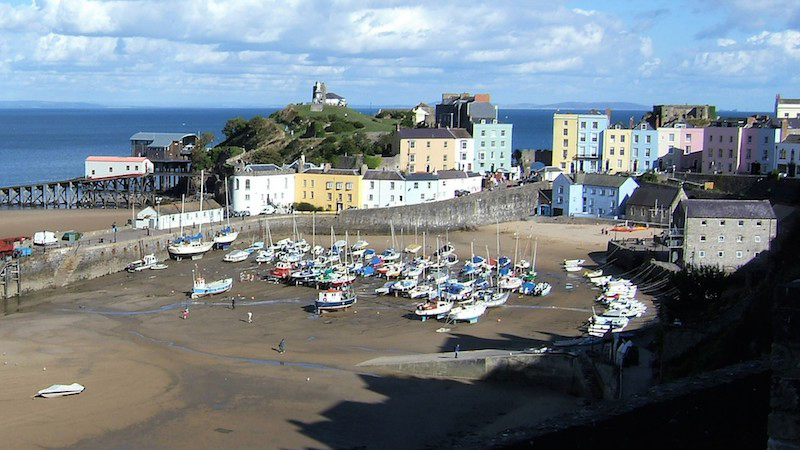The Trojan War is one of the most fascinating events in human history, yet no-one knows if it is really true. Was it the greatest catastrophe of the ancient world? If not, then it is certainly the greatest story ever told. My interest in the ‘Story of Troy’ began a long time ago after reading a little-known book on British history. This history, however, was not taught in the schools but, incredibly, it had its origins in the Trojan War. According to the British chronicles their ancient kings are descended from Brutus the Trojan, the great grandson of Aeneas of Troy. Aeneas was a Trojan prince who survived the Trojan War and led his people in exile to found a new Troy. The legend of Aeneas and his seven-year voyage from Troy to Italy is told in the Aeneid, a poem by Virgil.
It is taken for granted that Aeneas’ voyage took place in the Mediterranean and Aegean areas. It commenced at Troy, in modern-day Turkey, and ended in the river Tiber, in Italy. From a practical viewpoint, however, the journey cannot be completed in its entirety, and the narrative of the poem is full of irrational information. The list of anomalies and inconsistencies is quite long, including geographical inaccuracies. For example, Virgil describes in great detail storms, tempests, mountainous waves and black seas ‘boiling up’ from the depths. This information is at odds with our picture of the Mediterranean. He gives us perfect descriptions of the briny ocean and the tides, descriptions that do not match the Mediterranean/Aegean, yet if we transferred them to the Atlantic or the North Sea they would not be out of place.
HOMER’S AND VIRGIL’S DESCRIPTIONS OF TIDES DO NOT MATCH THAT OF THE MEDITERRANEAN
 TENBY, UK. ‘TIDE IN’ |
 TENBY, UK. ‘TIDE OUT’ |
All of these matters are dealt with in my book and the puzzling descriptions pose a number of important questions. Are there defects in the text of the Aeneid? Would Virgil allow such flaws to exist in his work, or is there some other explanation? Virgil’s poem is a work of fiction so it can be argued that it cannot be expected to be an historical account. It does surprise me, however, that Virgil can describe such conditions not normally associated with his part of the world. Alternatively, how can he get simple geographical facts wrong when they are close to the country where he lived?
Before we try to answer these questions it would be helpful if we looked at the problem from a different viewpoint, namely that of Homer and of Troy. Aeneas’ voyage commenced at Troy and Homer’s epic, the Iliad, describes the ten years war that was waged against the Trojans. Homer gives us detailed information on an infinite number of matters relating to the natural world in which he lived and, surprisingly, he tells us a lot about the seas and the tides. Throughout the Iliad he describes the seas as being salty. He uses the terms ‘grey’ sea and ‘wine-dark’ sea, the ‘sounding’ sea, and the ‘roaring’ sea. Homer tells us of the black rollers which pile up seaweed all along the beach, the grey and thundering surf, and the hissing waves. He describes squalls, choppy seas, and the storm-tossed sea when billows tumble over the bulwarks of a ship. He also tells us that the much-travelled seagoing ships of the Achaeans were fast ‘salt-watercraft’, and when they reached land the sailors cast anchors and made the hawsers fast. The picture that emerges from the Iliad is unambiguous. It is a picture of a sea that is continually in tumult, and the predominant colour is grey. These are accurate descriptions for the Atlantic but not for the Mediterranean.
HOMER’S AND VIRGIL’S DESCRIPTIONS OF THE SEAS DO NOT MATCH THE MEDITERRANEAN
 THE SEA DESCRIBED BY HOMER AND VIRGIL IS CONTINUALLY IN TUMULT.
THE SEA DESCRIBED BY HOMER AND VIRGIL IS CONTINUALLY IN TUMULT.
IT IS A GREY SEA, A ‘ROARING’ SEA WITH ‘THUNDERING’ SURF AND ‘HISSING’ WAVES. IT IS A TEMPESTUOUS SEA WITH MOUNTAINOUS WAVES.
THESE ARE ACCURATE DISCRIPTIONS FOR THE ATLANTIC BUT NOT THE MEDITERRANEAN.
So, as far as the descriptions of the seas and the tides are concerned, Homer does not tell us anything different from Virgil. Homer’s information actually reinforces what Virgil has told us. Are they both telling the truth, or are they both lying? Are they both wrong, or could they both be describing a place that is somewhere other than the Mediterranean? When we conduct additional research on climate, landscape and environment, this strengthens the evidence even further that the Trojan War did not take place in the Mediterranean area. This, however, is just the start of the investigation - the beginning of ‘The Discovery of Troy and its Lost History’.







